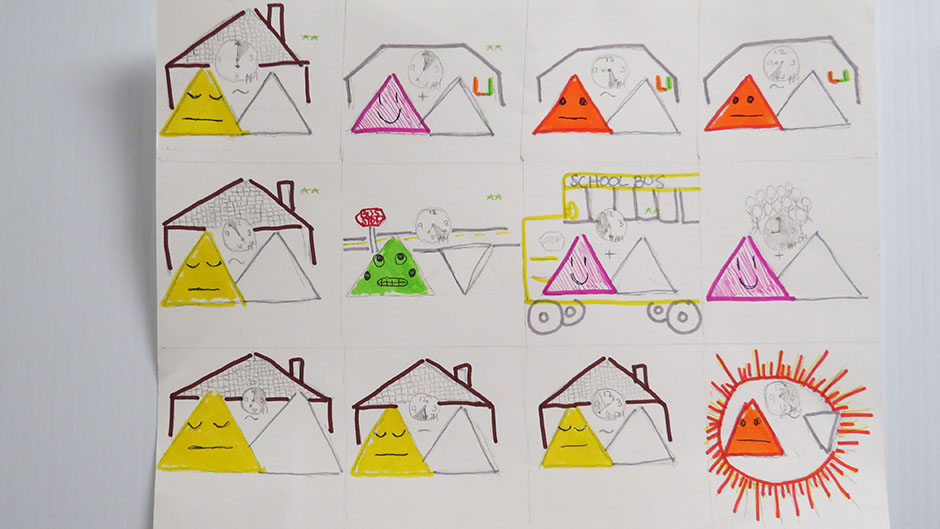It was just after sunrise in late July, during one of the last few weeks of summer break, and a group of at-risk youth and foster teens from some of Miami’s most underserved neighborhoods made their way to University of Miami’s Coral Gables Campus. Through a partnership with Educate Tomorrow—a Miami-based non-profit that provides educational support, mentoring and life-skills programming to foster youth—a group of 17 girls worked with experts from UM’s Center for Computational Science (CCS) to explore a wide range of possible careers in computational science.
As part of the Data Scholars Summer Data Immersion Program at UM’s CCS, the group engaged in projects and conversations about coding, geospatial, image and text data and data visualization—all of which they were previously not familiar with or particularly interested in.
“When we conceptualized the Data Scholars partnership with Educate Tomorrow, we consciously made the choice to reach populations of students that are underrepresented in disciplines of computational science and data,” said Athena Hadjixenofontos, director of engagement at UM’s CCS. “We wanted to communicate how important it is that they participate in creating our future as a human race and how that can be done through data science.”
When working with the group of teenagers, Hadjixenofontos, a computational geneticist by training, worked tediously to develop lesson plans and activities that would relate data science concepts to real life, practical situations—a new approach that ultimately proved to be successful. By understanding the importance and influence of social media, cell phone usage and online streaming, she seamlessly connected the students to potentially abstract concepts like data visualization bias in algorithms and various forms of computational data.
“Telling the students that ‘the data revolution is upon us’ isn’t necessarily going to increase the probability that they would seek out ways to participate in the changes that will shape the world they will live in,” said Hadjixenofontos. “My biggest hope is that having participated in the CCS Data Scholars, the students will feel a less intimidated by the big fancy words that are used to talk about data science, and therefore, be more likely to pursue opportunities that are related to this space.”
Four days a week, the girls worked with Hadjixenofontos to embrace challenges and learn new computational skills. After a month of hard work, their interests in data science began to blossom and on the final day of the program, the group of at-risk youth beamed with excitement as they prepared to present their hard work and accomplishments.
“Many of the students had never heard of computational science and disliked it at first but upon completion they shared their presentations with big smiles because they were so proud that they had conquered something new,” said Devin Floyd, director of mentoring at Educate Tomorrow. “There are even a few students who have taken a newfound interest in coding and have already expressed that they want to do more.”
For the final presentations, many of the students elected to present their findings from a data visualization experiment where they had to identify, measure, compute and creatively visualize an area of data from their daily lives. Topics varied from social media use, hours spent on Netflix, number of text messages exchanged and even the occurrence of being “cat called,” all over the course of about a week.
At first glance, the student displays appeared to be drawings, visualizations and word clouds about social media usage, hip-hop song lyrics, texting and daily emotions, but in actuality their work featured scholarly computational data sets on display.
Visually, the presentations appeared like works of art. The students conscientiously accounted for the data just as any computational scientist would have done and as they processed their findings, they developed elaborate systems and legends to communicate their work. Beyond complex data visualizations, the students also shared that while they were computing on data about themselves, they also learned the power of computational science within almost every career field.
“When working with computational and data skills, it is critical that we start developing the minds of the next generation prior to college,” said Nick Tsinoremas, center director at UM’s CCS. “Our youth have the power to lead the computational and data transformation that is happening around us,” he added.
As the program came to a close, Hadjixenofontos encouraged the newly minted Data Scholars to keep computational science in mind as they follow their passions. “I hope that the students took away that they can come as they are and that they have the ability to infuse perspective into this increasingly computational and increasingly interdisciplinary world that we are building,” she added.

